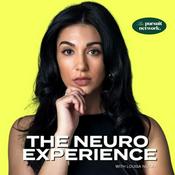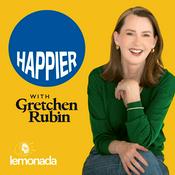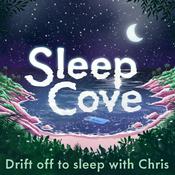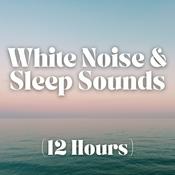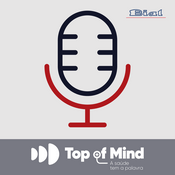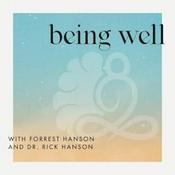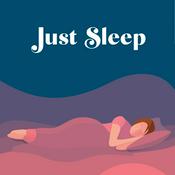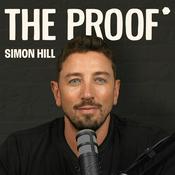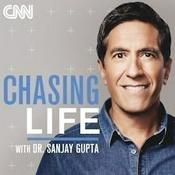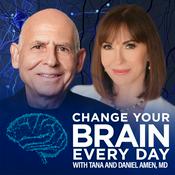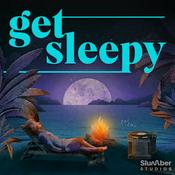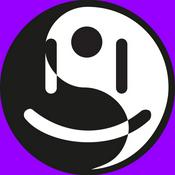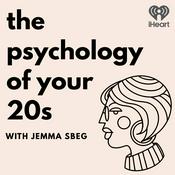145 episódios
- This episode of Disordered examines the fundamental "Golden Rules" of anxiety desensitization. Josh and Drew break down two core principles designed to guide long term desensitization for those struggling with panic disorder, agoraphobia, OCD, and health anxiety. They move away from promising cures or quick fixes, focusing instead on changing the listener's relationship with discomfort.
Rule One: Do what non-anxious you would do while anxious. The guys explain that this involves engaging in life tasks regardless of the presence of fear.
Rule Two: Don’t make anxiety the most important thing in the room. While anxiety is allowed to be present, it should not sit at the top of the decision making tree. Desensitization happens when values and intentions are prioritized over the urge to monitor internal feelings.
Acceptance vs. Control: Josh and Drew discuss the necessity of recognizing that attempts to control or escape anxiety are often ineffective. They advocate for psychological flexibility, where a person learns to be with difficult internal experiences rather than fighting them.
The Power of Agency: The guys emphasize that even in highly sensitized states, individuals retain agency over their attention. They describe how to tolerate physical symptoms without letting those sensations govern behavior.
"Did It Anyway" Stories: The episode features community members who applied these rules during high stakes moments like public speaking or travel. These stories serve to encourage others to face fears that are uncomfortable but not dangerous.
Josh and Drew frame desensitization as a journey requiring patience and persistence rather than a destination reached through "hacks" or secret solutions. This episode provides a practical framework for listeners ready to stop avoiding their feelings and start moving forward.
---
The Disordered Guide to Health Anxiety is now available. If you're struggling with health anxiety, this book is for you.
---
Want a way to ask questions about this episode or interact with other Disordered listeners? The Disordered community space is nearing release! Visit our home page and get on our mailing list for more information..
---
Struggling with worry and rumination that you feel you can't stop or control? Check out Worry and Rumination Explained, a two hour pre-recorded workshop produced by Josh and Drew. The workshop takes a deep dive into the mechanics of worrying and ruminating, offering some helpful ways to approach the seemingly unsolvable problem of trying to solve seemingly unsolvable problems. - In this episode of Disordered, guest co-host Kimberley Quinlan joins Drew to pull back the curtain on one of the most persistent hurdles in anxiety recovery: rumination. Whether you call it overthinking, worry, or mental "problem solving," the process is a universal constant across panic disorder, OCD, health anxiety, depression, and other related issues.
We examine why rumination feels like a productive tool when it is actually a mental compulsion designed to avoid the discomfort of uncertainty. Kim and Drew break down the "tax" that rumination imposes on your life, specifically the deep physiological and emotional exhaustion that leaves you without the energy to make the actual changes you want.
What You’ll Learn This Week:
The Process vs. The Content: Why the specific thing you are worried about matters less than the fact that you are stuck in a circular thinking process.
The "What If" Statement: How to recognize that "what if" is a statement of fear, not a question that requires an answer.
Problem Solving vs. Rumination: Identifying the moment thinking stops being an investment and starts becoming a drain.
Beliefs About Worry: Challenging the "positive" beliefs we hold, such as the idea that worrying makes us a better parent or more prepared for disaster.
Attention Control Training: Practical ways to re-engage with the present moment, even when your brain is screaming for certainty.
Recovery is about learning to put the thoughts down and returning to whatever is next in your day. It is hard work, and you might "suck at it" initially, but managing rumination is a skill for life that reduces suffering and brings you back to your own experiences.
Find Kim's podcast here:
https://www.youtube.com/@youranxietytoolkit
Kim's courses and workshops:
https://cbtschool.com
Kim's Instagram
https://instagram.com/YourAnxietyToolkit
---
The Disordered Guide to Health Anxiety is now available. If you're struggling with health anxiety, this book is for you.
---
Want a way to ask questions about this episode or interact with other Disordered listeners? The Disordered app is nearing release! Visit our home page and get on our mailing list for more information..
---
Struggling with worry and rumination that you feel you can't stop or control? Check out Worry and Rumination Explained, a two hour pre-recorded workshop produced by Josh and Drew. The workshop takes a deep dive into the mechanics of worrying and ruminating, offering some helpful ways to approach the seemingly unsolvable problem of trying to solve seemingly unsolvable problems. - In this episode, Drew and Josh discuss the world of anxiety cures and the "miracle" solutions often marketed to those struggling with panic, OCD, and health anxiety. They share personal stories of the various methods they tried during their own recoveries and explain why many popular trends fail to provide long-term relief.
The Magnetism of the Miracle Cure: Why we are drawn to supplements like magnesium or specialized "breathing devices" when we are desperate to feel better.
Control vs. Acceptance: How many anxiety cures are actually just hidden control strategies that prevent true psychological flexibility.
The Reality of "Natural" Supplements: A look at the laxative effects of magnesium and the empty promises of "science-based" miracle powders.
The "Secret" Rituals: Why techniques like EFT tapping or specialized humming might feel helpful in the moment but often reinforce the idea that anxiety is a danger to be managed.
The Risks of "Gurus" and Online Cults: How to identify predatory marketing and why a "lived experience" qualification does not replace professional, evidence-based training.
The guys break down why the search for an external fix often leads to more discouragement. They discuss how true recovery is found in learning to tolerate and be with difficult internal experiences rather than trying to engineer them away with bracelets, essential oils, or "secret" techniques.
If a solution is marketed as a "miracle" or "what nobody tells you," be cautious.
Recovery is an internal process of building distress tolerance, not an external process of finding the right product.
Support people are there to cheer you on through the fear, not to keep you "safe" from a feeling.
About Disordered: Drew Linsalata and Joshua Fletcher are therapists and authors who have both recovered from severe anxiety disorders. They use evidence-based principles from ACT, CBT, and mindfulness to help you navigate your recovery journey without the empty promises of "magic" cures.
---
The Disordered Guide to Health Anxiety is now available. If you're struggling with health anxiety, this book is for you.
---
Want a way to ask questions about this episode or interact with other Disordered listeners? The Disordered app is nearing release! Visit our home page and get on our mailing list for more information..
---
Struggling with worry and rumination that you feel you can't stop or control? Check out Worry and Rumination Explained, a two hour pre-recorded workshop produced by Josh and Drew. The workshop takes a deep dive into the mechanics of worrying and ruminating, offering some helpful ways to approach the seemingly unsolvable problem of trying to solve seemingly unsolvable problems. - Have you ever felt anxious about admitting you're doing better? Like saying "I'm okay" out loud might somehow jinx your progress or tempt fate?
In this episode, Drew and Josh explore that uncomfortable feeling when someone asks "How are you doing?" and you're caught between wanting to acknowledge improvement and being afraid that talking about it will make everything fall apart again.
What we discuss:
Why the question "How are you?" can feel triggering when you're recovering from an anxiety disorder
The superstition around "tempting fate" and what's really happening beneath it
How different contexts change what we mean by "doing okay" (spoiler: anxiety can be present while you're still doing okay)
The authenticity trap - feeling like you're lying either way
Why "I'm doing okay at the moment" might be the most honest answer you can give
How this fear shows up in OCD, health anxiety, panic disorder, and agoraphobia
The difference between attention-driven fear and superstitious fear
Why letting go of control can feel like tempting fate (and why that's exactly the practice)
Featured segments:
Community "Did It Anyway" stories highlighting real progress without promising outcomes
Discussion of how exposures work when they feel risky or reckless
Practical suggestions for navigating social questions about your wellbeing
This episode may be helpful for anyone struggling with the fear of acknowledging improvement, or who finds themselves avoiding conversations about their anxiety recovery.
---
The Disordered Guide to Health Anxiety is now available. If you're struggling with health anxiety, this book is for you.
---
Want a way to ask questions about this episode or interact with other Disordered listeners? The Disordered app is nearing release! Visit our home page and get on our mailing list for more information..
---
Struggling with worry and rumination that you feel you can't stop or control? Check out Worry and Rumination Explained, a two hour pre-recorded workshop produced by Josh and Drew. The workshop takes a deep dive into the mechanics of worrying and ruminating, offering some helpful ways to approach the seemingly unsolvable problem of trying to solve seemingly unsolvable problems. - In this listener participation episode, Drew and Josh tackle your questions about recovery while celebrating inspiring stories from the community.
Questions explored in this episode:
Why does my anxiety disorder feel like it's protecting me? When you're struggling with OCD, panic disorder, or health anxiety, your threat response can feel like a cult leader in your head—insisting it has your back, showing you "the truth," and making it incredibly risky to walk away. We break down why this happens and what you can do about it.
What about rolling panic attacks? One listener shares their experience of a vacation derailed by cascading panic attacks that wouldn't stop. We explain why panic attacks can roll from one into the next, what fuels this cycle, and how following anxiety's instructions in the moment keeps the wheel turning.
How do I handle competing voices in my head? As you progress in recovery, you may notice different voices—one saying "freak out now" and another saying "wait, let's see what's happening here." We discuss what these voices represent and how to work with them.
Other topics: Managing health anxiety when you're actually sick, dealing with rejection without letting it fuel future anxiety, and why thinking about "what could have been" isn't grief—it's just overthinking.
Did It Anyways from listeners include:
Changing medication brands without obsessing over side effects
Driving four hours alone to a camping trip despite agoraphobia
Sitting through a three-hour movie after a year of avoidance
Grocery shopping while anxious
Sharing romantic feelings despite fear of rejection
Key takeaway: The simplest description of anxiety disorder recovery? Getting really good at leaving it the hell alone. That means resisting the urge to fix, control, or prevent uncomfortable feelings, and instead doing what non-anxious you would do—even while you're feeling scared.
---
The Disordered Guide to Health Anxiety is now available. If you're struggling with health anxiety, this book is for you.
---
Want a way to ask questions about this episode or interact with other Disordered listeners? The Disordered community is nearing is opening day! Visit our home page and get on our mailing list for more information..
---
Struggling with worry and rumination that you feel you can't stop or control? Check out Worry and Rumination Explained, a two hour pre-recorded workshop produced by Josh and Drew. The workshop takes a deep dive into the mechanics of worrying and ruminating, offering some helpful ways to approach the seemingly unsolvable problem of trying to solve seemingly unsolvable problems.
Mais podcasts de Saúde e fitness
Podcasts em tendência em Saúde e fitness
Sobre Disordered: Anxiety Help
Disordered is the podcast that delivers real, evidence-based, actionable talk about anxiety disorders and anxiety recovery in a kind, compassionate, community-oriented environment. Josh Fletcher is a qualified psychotherapist in the UK. Drew Linsalata is a therapist practicing under supervision in the US. They're both bestselling authors in the anxiety and mental health space. Josh and Drew are funny, friendly, and they have a knack for combining lived experience, formal training, and professional experience in an encouraging, inspiring, and compassionate mental health message.
Sítio Web de podcastOuve Disordered: Anxiety Help, Somos Todos Malucos e muitos outros podcasts de todo o mundo com a aplicação radio.pt
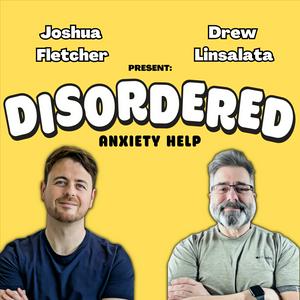
Obtenha a aplicação gratuita radio.pt
- Guardar rádios e podcasts favoritos
- Transmissão via Wi-Fi ou Bluetooth
- Carplay & Android Audo compatìvel
- E ainda mais funções
Obtenha a aplicação gratuita radio.pt
- Guardar rádios e podcasts favoritos
- Transmissão via Wi-Fi ou Bluetooth
- Carplay & Android Audo compatìvel
- E ainda mais funções


Disordered: Anxiety Help
Leia o código,
descarregue a aplicação,
ouça.
descarregue a aplicação,
ouça.














